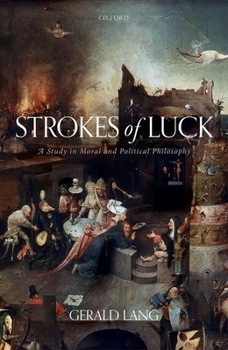Strokes of Luck: A Study in Moral and Political Philosophy
Strokes of Luck provides a detailed and wide-ranging examination of the role of luck in moral and political philosophy. The first part tackles debates in moral luck, which are concerned with the assignment of blameworthiness to individuals who are separated only by lucky differences. 'Anti-luckists' think that one who, for example, attempts and succeeds in an assassination and one who attempts and fails are equally blameworthy. This book defends an anti-anti-luckist argument, according to which the successful assassin is more blameworthy than the unsuccessful one. Moreover, the successful assassin is, all things equal, a worse person than the unsuccessful one. The worldly outcomes of our acts can make an all-important difference, not only to how bad our acts can be deemed, but to how bad we are. The second part enters into debates about distributive justice. Lang argues that the attempt to neutralize luck in the distribution of advantages among individuals does not deserve its prominence in political philosophy: the 'luck egalitarian' programme is flawed. A better way forward is to re-invest in John Rawls's 'justice as fairness', which demonstrates a superior way of taming the bad effects of luck and unchosen disadvantage.
Format:Hardcover
Language:English
ISBN:0198868502
ISBN13:9780198868507
Release Date:August 2021
Publisher:Oxford University Press
Length:304 Pages
Weight:1.30 lbs.
Dimensions:0.4" x 6.3" x 7.6"
Related Subjects
PhilosophyCustomer Reviews
0 rating





